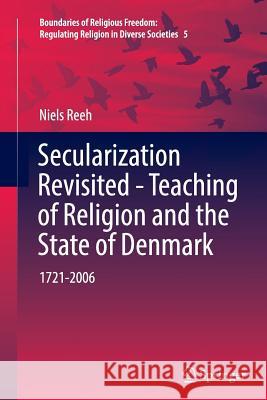Secularization Revisited - Teaching of Religion and the State of Denmark: 1721-2006 » książka
topmenu
Secularization Revisited - Teaching of Religion and the State of Denmark: 1721-2006
ISBN-13: 9783319819211 / Angielski / Miękka / 2018 / 206 str.
Kategorie:
Kategorie BISAC:
Wydawca:
Springer
Seria wydawnicza:
Język:
Angielski
ISBN-13:
9783319819211
Rok wydania:
2018
Wydanie:
Softcover Repri
Ilość stron:
206
Waga:
0.31 kg
Wymiary:
23.39 x 15.6 x 1.17
Oprawa:
Miękka
Wolumenów:
01
Dodatkowe informacje:
Wydanie ilustrowane











